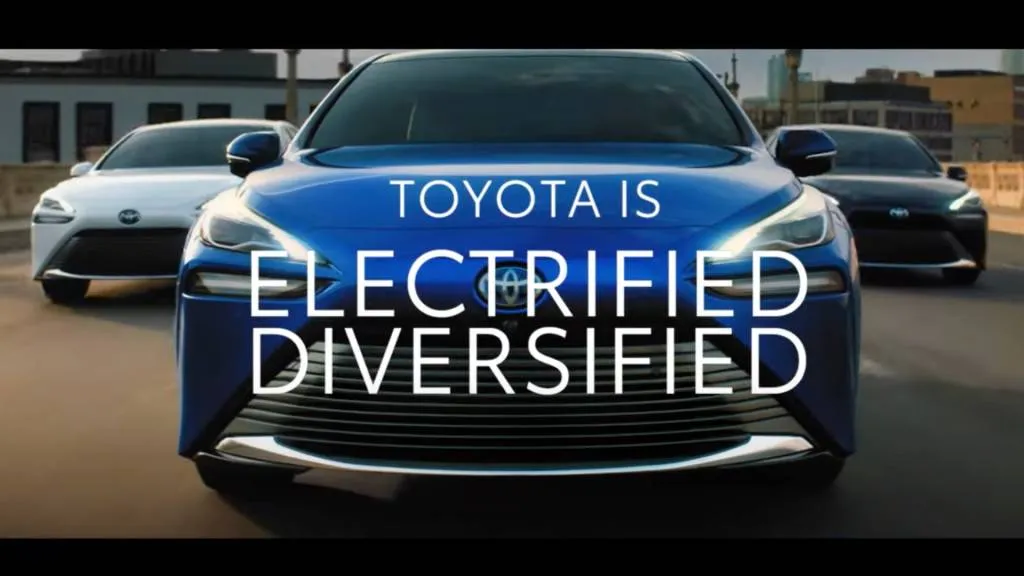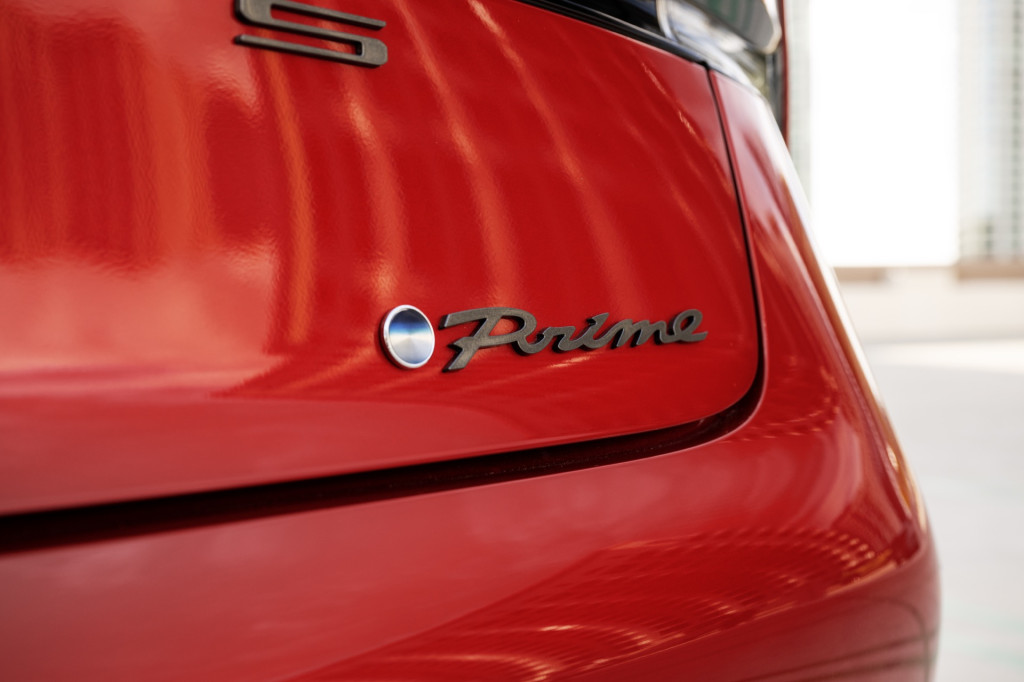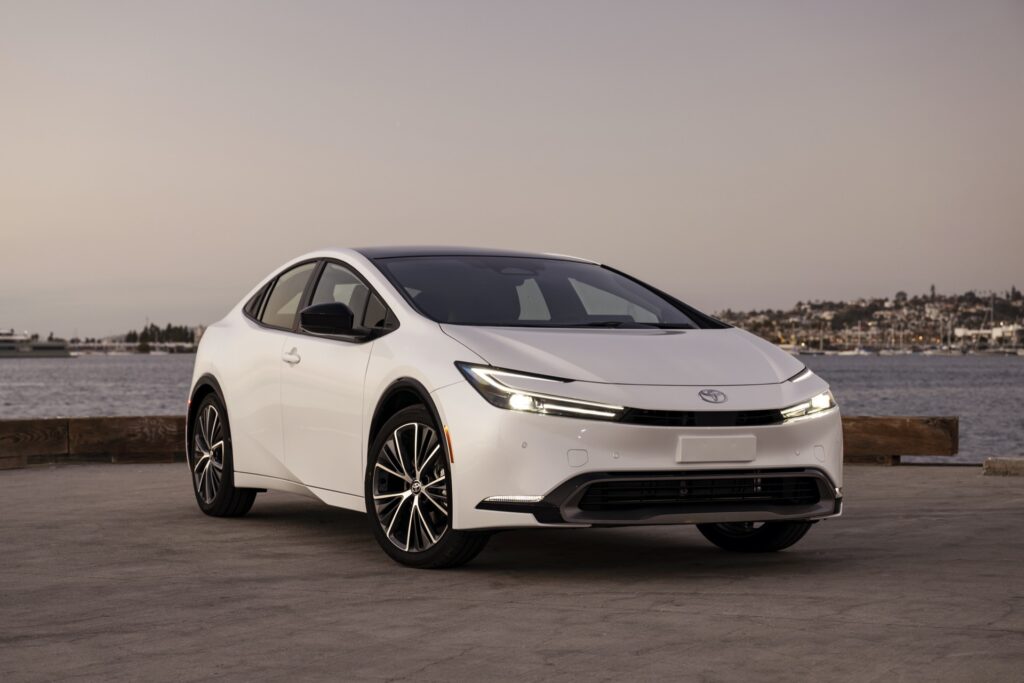Hybrid cars have combustion engines but, unless they are plug-in hybrids, not EV charge ports.
A new Toyota marketing campaign appears to downplay the difference. Announced Monday, the new “Electrified Diversified” campaign emphasizes the variety of options available from Toyota, encompassing battery-electric, hydrogen fuel-cell, plug-in hybrid, and hybrid powertrains.
In an accompanying press release, Toyota refers to them all as “EVs.”
“Toyota believes in the power of choices by offering a full spectrum of electrified powertrains for consumers to choose from—battery EV, hybrid EV, plug-in EV, fuel-cell EV—there’s an option for everyone,” the release reads.
If car shoppers were given the choice between a “battery EV” and a “plug-in EV,” would they be able to tell you which EV has the bigger battery, or which one plugs in exclusively and doesn’t have a tailpipe?

Toyota
The sample video ad included with the release does not mention “hybrid EV” or “hybrid electric” vehicles, but declares that Toyota is “giving you the choice on how to reduce carbon emissions.”
The campaign has already drawn criticism from Public Citizen, which has accused Toyota of “keeping fossil fuels alive” by muddling hybrids and EVs.
“Calling vehicles with combustion engines ‘EVs’ is greenwashing, and is a blatant effort to mislead consumers who typically understand an EV to be a fully electric vehicle, not one that pollutes from a tailpipe,” East Peterson-Trujillo, senior clean vehicles campaigner on Public Citizen’s Climate Team, said in a statement.
This isn’t the first time Toyota has been criticized for comparing hybrids to EVs in its advertising. Despite pushback from consumer groups and a regulatory crackdown in Norway, the automaker continues to market its Lexus hybrids as “self-charging” in Europe, where it previously used the equally confusing “always charged” tagline.

2023 Toyota Prius Prime
As for hybrid vehicles with charge ports, Toyota continues to badge its plug-in hybrids—including the excellent Prius Prime and RAV4 Prime—with the Prime name. If shoppers navigate past the battery EV and plug-in EV confusion, that should help differentiate them from both standard hybrids and all-electric cars.
Some automakers—Chrysler and Subaru, for instance—have opted for the opposite approach, with understated “hybrid” badging despite charge ports on the Pacifica Hybrid and now-discontinued Crosstrek Hybrid, respectfully. Volvo, meanwhile, has gone so far as to admit to making design changes to mask exhaust tips on its plug-in hybrids.

